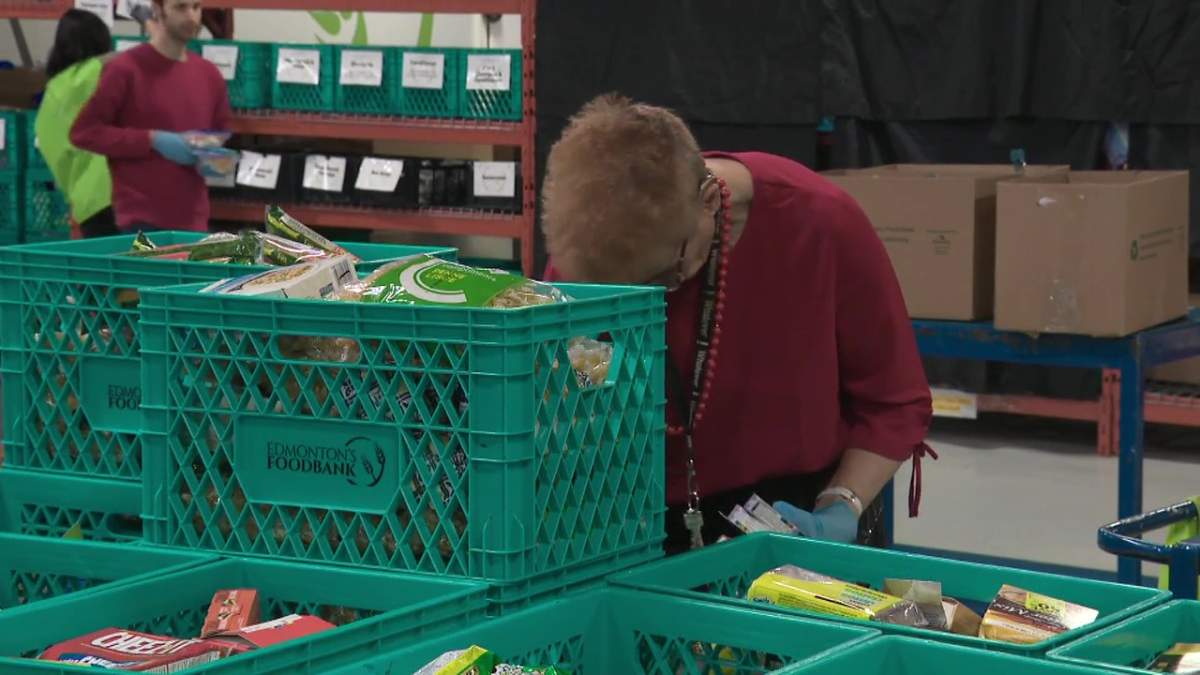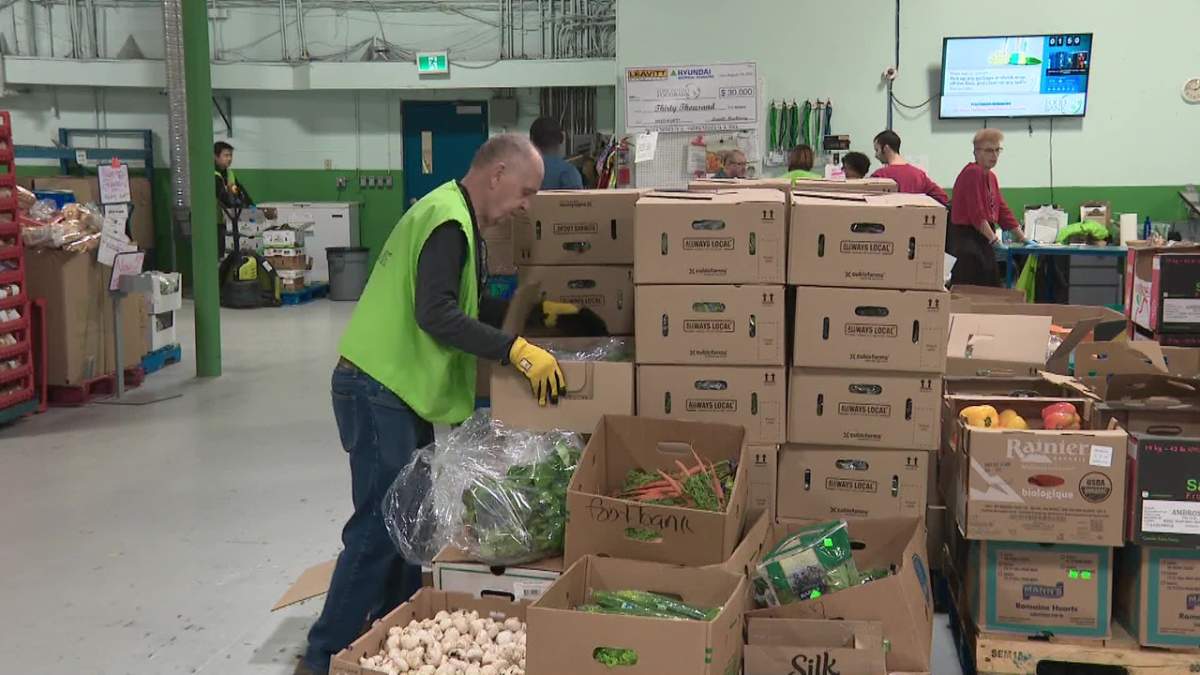Food banks and community organizations from across Alberta received a $10-million boost from the provincial government Monday in an attempt to increase access to quality and nutritious food, as the cost of groceries remains sky-high for many.

The province said $3.7 million is going to food banks this month.
Edmonton’s Food Bank is known for its individual hampers but executive director Marjorie Bencz said it’s a central warehouse that collects and redistributes food to more than 300 schools, soup kitchens, shelters, food depots and community groups.

In August alone, the food bank served 37,400 people through the hamper program at its 67 depots throughout Edmonton, which Bencz said is a record high for the organization.
Last year, Edmonton’s Food Bank had to change the size of its hampers in order to keep up with demand and increased its hours of operations.
“We also were a little bit clearer about expectations about the agencies that were coming to us and accessing food from us, so we would have more transparency and accountability for food that was going back out in the community,” Bencz said.
Since 2019, the Calgary Food Bank has seen a 140 per cent increase in client visits, said president and CEO Melissa From, adding 30 per cent of that increase came in the last year alone.
“We are seeing the impacts of our cost of living crisis every single day, where access to nutritious food is becoming increasingly unattainable for people who otherwise would never have imagined that they would need this help,” she said.
It isn’t just the homeless and low-income residents seeking help either, From said.

Get daily National news
“In the last year we’ve seen a 34 per cent increase in working Albertans coming to our food bank in Calgary — that is, folks who are working every day and just can’t make ends’ meet.
“Parents are skipping meals that their children can eat and we’ve seen more than 30 per cent of our clients as newcomers to our country — folks who have come from war-torn areas like Ukraine — looking for a better life, and yet they can’t put food on their tables.”
Of the $3.7 million, the government said $900,000 of funding to food banks has already been provided to the Family and Community Support Services Association of Alberta to administer food security grants, and to shelters to provide food for those experiencing homelessness. Bencz said the Hope Mission comes to the food bank up to three times a day to pick up food for their programs.

Another $4.1 million of the provincial government money will be allocated through food security grants. Applications will open this month to organizations promoting food security, including smaller organizations that provide culturally appropriate food.
“This announcement today is about food, but just as importantly, it is about ensuring access to food regardless of where you live within our province,” said Food Banks Alberta executive director Shawna Bissell.
“This funding will support community food banks as they support their own with compassion, consideration, efficiency and effectiveness.”
On the same day Canada’s premiers presented a rare unified front in saying Ottawa’s recent changes to its carbon pricing measures were unfairly applied across the country, Seniors, Community and Social Services Minister Jason Nixon said the federal government could quickly address affordability by dropping the carbon price entirely.
“The single biggest impact to food costs right now in our country is coming from the increase the fuel cost and that’s because everywhere from the farm to transportation to grocery stores, to grocery stores themselves, are impacted by that carbon tax,” Nixon said.
“The reality is that everything comes in our society either by truck and or train. And so if we can get our fuel costs down, we can be able to help every Albertan, including food banks, be able to have a little better price at the grocery store.”
Nixon said Alberta will continue to call on the federal government to scrap the carbon price — either permanently or temporarily while inflation remains high.
“Justin Trudeau could immediately go to the House of Commons and at least temporarily suspend things like the carbon tax to help Albertans pay for food, for heat, for their fuel.
“This is impacting the cost of all of our lives.”
Food Banks Alberta will also receive $2.2 million to develop a program to co-ordinate the needs of food banks and related operators during emergencies such as natural disasters, the province said.
This past May, tens of thousands of Albertans were forced from their homes due to wildfire evacuation orders, some of which lasted several weeks.
“We saw an unprecedented year of emergencies with the wildfire season, and we do see a need to continue to be able to work in a more formal way to be able to help food banks help us be able to meet the needs of Albertans in emergency situations,” Nixon said.
Over the past three years, the province said $26 million has been given to food banks and organizations supporting food security across Alberta: $6 million in 2020-21, $10 million last year and another $10 million this year.
Neither the province nor the food banks could say Monday how far the money will go to making a difference before more help is needed.












Comments
Want to discuss? Please read our Commenting Policy first.